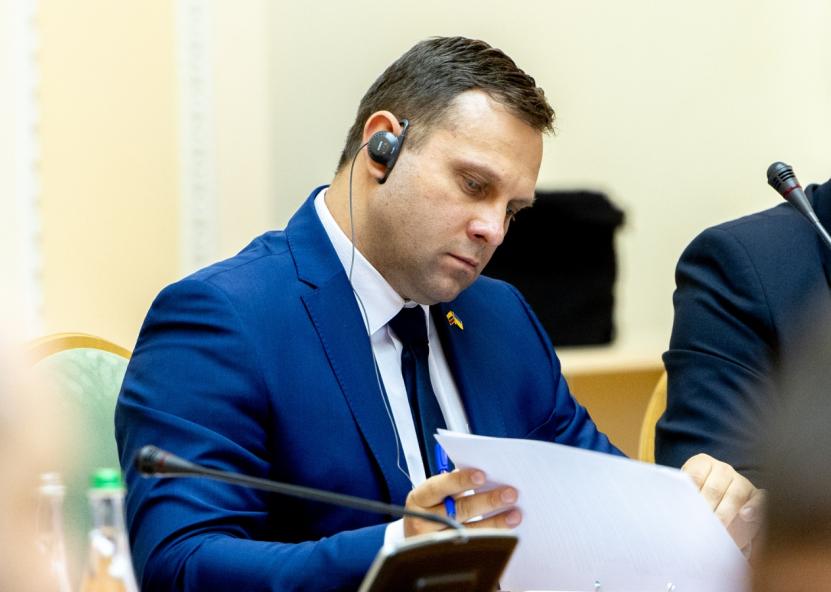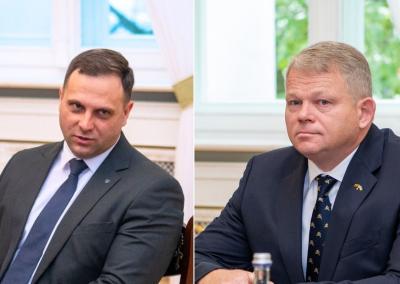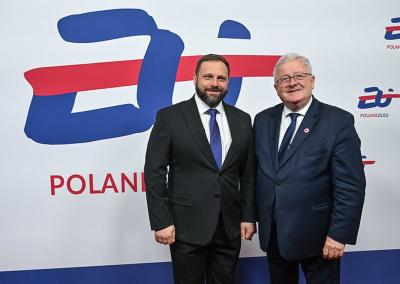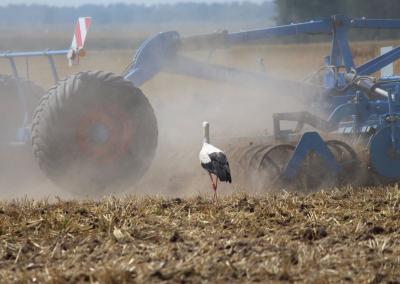I. Hofman: the agricultural sector is at risk of stagnation
The European Commission (EC) has published the breakdown of the amounts reserved for Member States in the Common Agricultural Policy (CAP) for 2028-2034.
The proposed reserved amount of €4,386.5 million for Lithuania is seriously worrying. It is earmarked for income support measures for farmers and will cover direct payments, sectoral interventions and most rural development measures: investment support, establishment of young farmers, small farm development, business promotion, farm replacement services, etc.
„This proposed set-aside for Lithuania is dangerously low and inadequate for our country's agricultural and rural development needs and strategic objectives. Compared to the 2021-2027 period, when the funding for agriculture and rural development (excluding non-income support measures) amounted to €5,485.2 million, the new proposal is as much as 20% lower," said Ignas Hofmanas, Acting Minister of Agriculture.
A total of €300 billion is earmarked for all Member States, of which €6.3 billion is earmarked for the Agricultural Reserve, and the remainder €293.7 billion for income support measures.In terms of the average annual amount of funds proposed by the EC, calculated on the basis of eligible hectares in all Member States, Lithuania is ranked 2nd from the bottom among all EU countries (see figure).
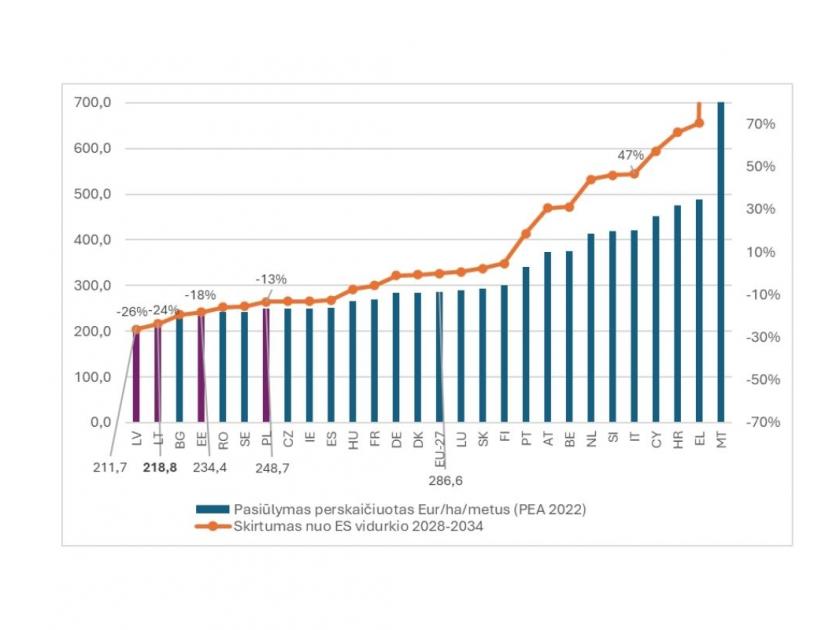
„Even in the most pessimistic scenario, where the envelope of direct payments would be frozen at the level of 2027 – which is completely inconsistent with Lithuania's agricultural needs and strategic priorities, – it would require around €4,289 million for the financing of direct payments alone, which is almost all the reserved funding for Lithuania“, emphasised I. Hofmanas.
According to him, all this shows that the EC's decisions run the risk of shifting responsibility from Brussels to national level. The only way to find additional funds at the moment – is through a common redistribution fund to implement the NRP plans, in which other sectors of the Lithuanian economy will have to compete for funds. Against this background, the forecasts for rural development warn of a potentially ominous turning point. The proposed principle of "internal agreement", with an understanding of defence and cohesion priorities, will not be effective.
„Such a scenario is unacceptable for Lithuania. It is clear that the negotiations ahead will be complex, long and focused, based on values and a clear representation of the interests of agriculture, rural development and the country as a whole. The proposed financing model shows a desire to fundamentally change the principles of the CAP that have been in force so far, increasing the financial burden on farmers. This raises the fundamental question: how will convergence of direct payments towards the EU average be ensured and how will climate change mitigation measures be implemented? If the amount reserved for Lithuanian agriculture and rural development remains at the level proposed by the EC, we will have to give up additional agricultural activities and measures aimed at achieving climate objectives“ – says I. Hofmanas.



































































































